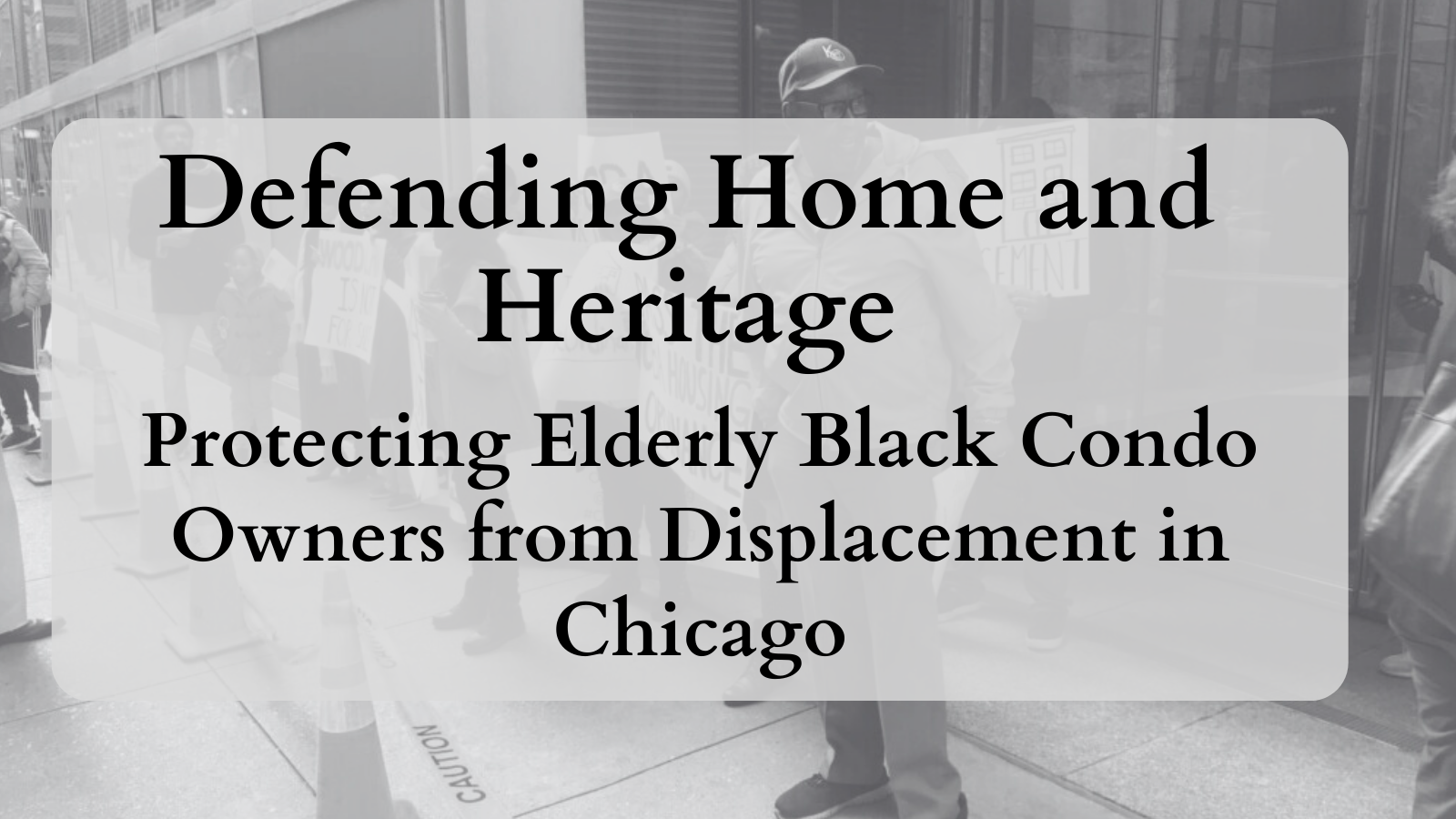CHICAGO SUN-TIMES EDITORIAL ON CHICAGO HOUSING AUTHORITY (CHA)
MEDIA COVERAGE
Chicago Sun-Times | January 19, 2014: Editorial: CHA sits on cash as needs rise
PRESS RELEASE
CITY FUNDS PRIVATE DEVELOPERS WHILE DE-FUNDING PUBLIC HOUSING
Report Highlights Federal De-regulation Impact & Privatization Model Resulting In 60,000 Chicagoans On CHA Waitlist, 15,000 Funded Housing Vouchers Never Distributed, $40 Million in Housing Construction Grants Diverted Annually
Call for CHA Accountability Project
CHICAGO – In 2011, the Chicago Housing Authority (CHA) received more than $74 Million in federal grant funding for public housing based on vacant units and apartments no longer physically standing, but then withheld funded vouchers for 15,000 eligible households and pushed funds designated for building replacement housing into a general CHA fund, according to a recent study produced by the Chicago Housing Initiative. The study revealed significant declines in low-income housing opportunities under the CHA Plan for Transformation (PFT), and linked this drop to the privatization of public housing, with federal de-regulation, limited accountability and mayoral control as enabling factors.
“De-regulation has led to an unchecked diversion of millions in public resources from their intended use to provide housing options to low-income Chicago families. There is a troubling lack of public accountability from the CHA, which despite millions in annual grants ear-marked exclusively to produce replacement public housing, has slowed construction of replacement housing to the lowest levels in history. CHA has left 60,000 families on the its waiting lists for housing even as resources exist to serve thousands more,” said Leah Levinger, Director of the Chicago Housing Initiative.
“CHA’s 2014 plans focus more on demolition than rehabilitation, with no transparency for where these designated dollars for rebuilding or rehabilitating public housing are actually going. That is why we are calling for the CHA Accountability Project asking for accountability and transparency as promised by the Mayor when he ran for office,” said Levinger.
REPORT KEY FINDINGS
The Chicago Housing Initiative prepared the study: Issue Briefing on Chicago Housing Authority Finances and Redevelopments, analyzing development-by-development vacancy data, sources and uses of funding for CHA’s mixed income redevelopments, along with HUD reports about the Chicago Housing Authority’s operating and capital grants.
PRIVATIZATION MODEL FAILS TO DELIVER LOW-INCOME HOUSING BENEFIT
While privatization was intended by Mayor Daley and then-CHA-Commissioner Emanuel to leverage investment by the private sector to provide public housing using less public money, the study revealed that only a small portion of the total financing for the mixed-income developments came from private sources. Instead, the majority came from dollars earmarked by the city and federal government for building affordable housing:
- Public dollars greatly exceed private funds in financing private mixed income development:
- The private sector has provided only a fraction of investment in mixed-income public housing redevelopments. The city investment, alone, from 2000 to 2013 under the PFT plan equates to $651 million, while CHA has invested $278 million, and the state has invested $39.6 million. In contrast, private bank financing has been significantly less at $25 million and developer equity only $4.6 million.
- Consolidating development contracts is enriching developers while de-funding public housing. Under the PFT, six private developers have received 33 CHA redevelopment contracts, with those few developers receiving $45.9 million in fees straight off the top of redevelopment funds.
- Use of City Affordable Housing Funds by Private Developers Leads to Net Loss in Affordable Housing:
- Between 2000 and 2013, the City of Chicago invested over $650 million in demolishing traditional public housing and building mixed-income housing as part of the CHA’s Plan for Transformation. The City paid $61 million in developer fees.
- OUTCOME: These funds led to a net gain of 641 market rate rentals and 624 market rate for-sale homes, and a net loss of over 14,000 public and affordable housing units.
- Under Mayor Emanuel, the 2014-2018 5 Year Housing Plan, which will direct the investment of over $1 billion in City affordable housing funds, has dropped the word “affordable” altogether. The 2014-2018 Housing Plan is awaiting City Council approval.
- Between 2000 and 2013, the City of Chicago invested over $650 million in demolishing traditional public housing and building mixed-income housing as part of the CHA’s Plan for Transformation. The City paid $61 million in developer fees.
FEDERAL DEREGULATION ELIMINATES CONSEQUENCES FOR EMPTY UNITS
De-regulation of the CHA, negotiated by Mayor Daley and supported by Mayor Emanuel during his time on the CHA’s Board of Commissioners, resulted in federal income streams for public housing programs being commingled into a General Fund, thereby granting CHA wide discretion for use of federal funds while ceasing federal supervision and removing rules, accountability and consequences:
- Exempt from penalties: There are no financial consequences for leaving apartments vacant. CHA receives funding regardless of whether the units are occupied. CHA is exempt from obtaining HUD approval to leave HUD-funded apartments vacant.
- In 2012, CHA received federal funding for 4,941 housing units that it left vacant. In 2013, the CHA estimated that it would receive federal funding for 4,525 vacant units. Over $30 million in federal funding annually comes into the CHA on the basis of public housing units the Agency never leases.
- The Family Housing Waitlist is over 60,000 families long.
- No consequence for default on commitments: CHA committed to build 6,500 replacement-housing units in the 2004-2008 City Afforable Housing Plan, however only 1,232 units were actually built and later plans made no mention of default on the commitment or a need to fulfill the commitment.
- Misuse of replacement housing funding:
- Despite federal funds designated for replacement housing construction, the average number of replacement units constructed has declined steeply each year since 2011 and are projected to be at the lowest number in the CHA’s history, less than 50 units, in 2014. The number of replacement units constructed has been cut by 95% since Mayor Emanuel took office.
- The CHA has failed to use HUD grants ear-marked to construct replacement public housing for units that have long been demolished, including the Harold Ickes Homes and LeClaire Courts, where no rebuilding has occurred.
- No follow through on promised improvements to leasing turn-around time: Following investigations revealing an average 453-day lead time in re-leasing apartments that became vacant, CHA created a turnaround goal of leasing units within 30 days or less. However, CHA has censored reports to no longer show tracking of turnaround times and has not provided data requested through FOIA.
- No disclosure required on reasons for withholding vouchers from circulation despite funding: Funded Housing Choice Vouchers are not circulated for public use. Since at least 2005, the CHA has failed to lease approximately 30% of its Housing Choice Vouchers. In 2012, 51,415 vouchers were funded but 14,186 of these were not authorized by the CHA for use. In 2014, the CHA estimates that it will withhold 13,963 of its 52,049 vouchers. Annually, the CHA diverts over $100 million in federal income received for its housing voucher program to other cost centers annually.
- The average waiting time to receive a housing voucher is 120 months (10 years) compared with a national average of 12 – 24 months.
- Unchecked extension of failing plan: The Plan for Transformation was 10-year plan that began in 2000 and has been extended to 2015. CHA has a long-standing public commitment to produce 25,000 replacement units under the Plan, but is at least 3,600 units shy of that pledge today. The lack of accountability for CHA has allowed for the extension of the plan without scrutiny. If CHA continues its current rate of delivering replacement housing, CHA will fail to meet the commitment, which will require an additional extension of the Plan for Transformation until at least 2020.
KEY RECOMMENDATIONS: URGENT NEED FOR CHA REFORM, LOCAL & FEDERAL MANAGEMENT
The study identified opportunities to improve government accountability, transparency, and affordable housing access through CHA reform. Calling for a CHA Accountability Project specific recommendations include:
- The City Inspector General and HUD Inspector General conduct forensic accounting investigations into the CHA’s use of city and federal funds.
- Mayor Emanuel agrees to relinquish the CHA’s deregulated status to restore federal oversight and improve accountability for public funds.
- The Mayor creates Blue Ribbon Commission with non-interested parties to monitor CHA’s use of public money.
- Reform CHA through an elected CHA Board of Commissioners.
- Improve affordable housing access through renewed focus on rehabilitation and preservation of remaining public housing communities, rather than demolition and privatization.
- Transparency on turnaround of vacancies, vacancy rates, and voucher withholding through detailed annual public reporting.
ABOUT CHICAGO HOUSING INITIATIVE
Organized in 2007, Chicago Housing Initiative (CHI) is a low-income housing coalition made up of eight community organizations whose mission is to preserve, improve and expand low-rent housing options, promote community stabilization and advance racial and economic inclusion and equity. For more information please visit www.chicagohousinginitiative.org.





